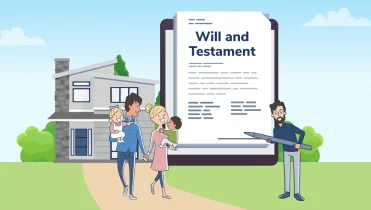A Guide To Total and Permanent Disability (TPD) Insurance In Australia
What would happen to you and your family if a serious injury or illness leaves you unable to work ever again?
While that's an unpleasant thought, it's why total and permanent disability (TPD) cover exists.
It's a type of life insurance that can give you and your loved ones peace of mind if the worst happens.
It's pretty straightforward to buy TPD but there are different types of cover and not all policies are created equal.
This guide keeps it simple and gives you the knowledge you need to confidently find the right policy for you, by answering the questions our team gets asked day in, day out.
Key Points
TPD insurance cover pays a lump sum if your insurer judges that you're totally and permanently disabled due to an illness or injury.
TPD cover is different to some other types of life insurance as it pays out when you're still alive.
TPD cover has several different definitions and criteria for a successful claim that can vary between insurers.
What is total and permanent disability (TPD) insurance cover?
The principle of TPD is relatively simple.
It's a type of life insurance that pays a lump sum when the policy holder becomes totally and permanently disabled due to an illness or injury and is unable to work ever again.
But while the principle is simple, the definitions of exactly what constitutes a total and permanent disability can vary between insurers.
It's why it's important to pay close attention to the fine print in your insurer's product disclosure statement (PDS).
But don't worry - we'll walk you through what you need to look for.
What are the benefits of TPD insurance?
TPD insurance is designed to ensure your financial security if you are unable to work ever again due to a total and permanent disability.
You can use the lump sum to pay for medical bills, cover your living costs, look after your family, or pay off significant debts, like your mortgage, if a serious illness or injury permanently prevents you from working.
What's not covered in TPD insurance?
TPD insurance doesn't cover death or a temporary inability to work.
For example, if you break your leg and need to take time off work to recover, then you wouldn't be able to claim on your TPD cover as the injury isn't serious enough for you to be unable to work permanently. That kind of income interruption can be covered by an income protection policy (see below).
It also does not cover the diagnosis of a serious illness, unless that illness prevents you from working ever again.
How does TPD differ from other types of life insurance?
Term life insurance, or life cover, pays your beneficiary a lump sum if you die or are diagnosed with a terminal illness.
Trauma cover, or critical illness cover, pays a lump sum for certain pre-agreed serious illnesses such as cancer or heart attack.
Income protection insurance pays up to 70 percent of your income if you're unable to work due to a temporary illness or injury.
Types of Life Insurance
Life Cover | Trauma Cover |
|---|---|
Also known as: Term Cover, Death cover What it does: Pays a nominated person a lump sum if you die or develop a terminal illness. | Also known as: Critical illness cover What it does: Provide a lump sum for certain injuries or illness like cancer or heart attacks. |
Total and permanent disability cover | Income protection |
|---|---|
Also known as: TPD What it does: Pays a lump sum if you can't work again due to permanent illness, injury or disability. | Also known as: IP What it does: Pays up to 70% of your usual income if illness or injury means you can't work |
TPD won't cover any of the above but you can buy multiple life policies to cover you in all worst-case scenarios.
Compare & SaveDo you need TPD if you have income protection?
Income Protection and TPD cover different things and it's common for people to take out both types of cover if they feel they need it.
Income protection insurance is designed to keep a portion of your normal income flowing in during a temporary injury or illness.
TPD insurance, on the other hand, is a financial boost paid in a lump sum. It can be used for things like adapting your house, paying off your mortgage, or covering on-going living expenses.
How much does TPD cost?
This is calculated on your individual risk profile, and varies widely between insurers.
The team at Compare Club can help find you the best options for TPD cover.
We compare 10 of Australia's leading life insurers to find the best policy for your needs and budget.
What's the difference between Any and Own Occupation definitions in TPD?
When you take out a TPD policy you'll either have an Own Occupation policy or an Any Occupation policy.
It's worth checking whether your policy is Own or Any Occupation as it affects whether or not you'll get a payout.
As a rule of thumb:
Own Occupation pays out if you make a claim because you can't work permanently in your own occupation at the time of your claim.
Any Occupation pays out if you make a claim because you can't work permanently in any occupation suitable for your experience, education or training.
What does any occupation and own occupation mean?
Meet Kat. She's a mechanic. She badly injures her arm in an accident and is unable to work as a mechanic again. |
|---|
Own Occupation: | Any Occupation: |
|---|---|
Kat can claim on an Own Occupation TPD policy. She was working as a mechanic when she was injured and cannot return to this job. | Kat can only claim on an Any Occupation TPD policy if she cannot work in any occupation she has experience, education, or training in. |
Kat used to work in a call centre before becoming a mechanic. Her Any Occupation claim may be denied if she could still work in a call centre. |
|---|
The main difference here is in an Any Occupation policy, insurers may decide you're still fit to work based on your education, training and experience.
Essentially, you have a much higher barrier to claiming under an Any Occupation policy.
Compare & SaveCan I get TPD through my super?
Yes, many super funds have TPD included automatically.
It's worth noting that TPD insurance through super funds will always be Any Occupation cover only, as Own Occupation isn't available through super.
In addition, some super funds may make you do an Activities of Daily Living (ADL) test to assess the severity of your disability.
That means they may only pay out if you are unable to feed yourself, move or walk independently, and complete basic personal hygiene tasks.
The level of TPD in super can also vary wildly, prompting the Australian Securities and Investments Commission (ASIC) to issue a warning over the large differences between default TPD cover and costs in super.
For some people, their super fund's TPD may be enough for them.
But it's worth taking time to explore what cover you have in your super, what it covers you for and how much of your retirement savings are paying for it.
If you think you're getting a poor deal through your super, but would still like TPD cover, our team at Compare Club can help compare policies for you.
Can you work again after claiming TPD?
Yes. If your insurer agrees that you have satisfied the terms of your TPD policy and you receive a payout, you can work again if you make a sufficient recovery.
How long do TPD claims take?
Claim timelines differ between insurers, but it usually takes around two to three months for a straightforward TPD claim to be approved.
It can take longer if you have a more complex claim.
Can you claim TPD for partial disability?
You can, but it depends on your ability to work.
If your insurer is satisfied that you're unlikely to be able to work again due to your disability, then you will get a payout.
This is where Own and Any Occupation comes in.
Own Occupation holders are likely to be successful in claiming if they can show that they can't work in their current occupation.
If you hold Any Occupation, then your insurer may reject your claim if they take the view that you could do another job that fits your training, education and career background.
Can you claim TPD for mental illness?
Yes, you may be able to claim for a mental illness that stops you from working but it depends on the terms of your TPD policy.
Not all TPD policies include mental illness.
Could your TPD claim be disputed?
Yes. Your insurance company will dispute your claim if they believe it doesn't satisfy the terms of your TPD policy.
That's why it's important to read and understand the product disclosure statement, and to know what you are and aren't covered for.
Don't worry, though.
Our specialists at Compare Club can help make sure every element of your TPD policy is clear to you and you know what you're covered for and what's excluded.
Where can I buy the best TPD cover?
It depends. The best cover for one person, may not be suitable for somebody else, so it pays to compare.
Before you start, it's good to have an idea of how much you want to be covered for, how long you want to be covered for, and what type of policy you need.
Most life insurers will offer TPD coverage, and it's surprisingly easy to compare which is best for you.
Just get in contact with one of our specialists at Compare Club.
We compare 10 of Australia's leading life insurers and can find cover options that suit your needs, while avoiding any surprises or exclusions that might affect your ability to claim.
Nobody likes to think about serious illness and injury, which is why a good TPD policy can provide peace of mind.
Let the experts at Compare Club do the hard work, so you can relax knowing you and your loved ones can be financially secure if the worst should happen.
Compare & SaveThe information contained in this guide is of general nature only and has been prepared without taking into consideration your objectives, needs and financial situation. As such, it is important that you consider the appropriateness of any advice and the relevant product disclosure statement (PDS) before proceeding. Check with a financial professional before making any decisions.




